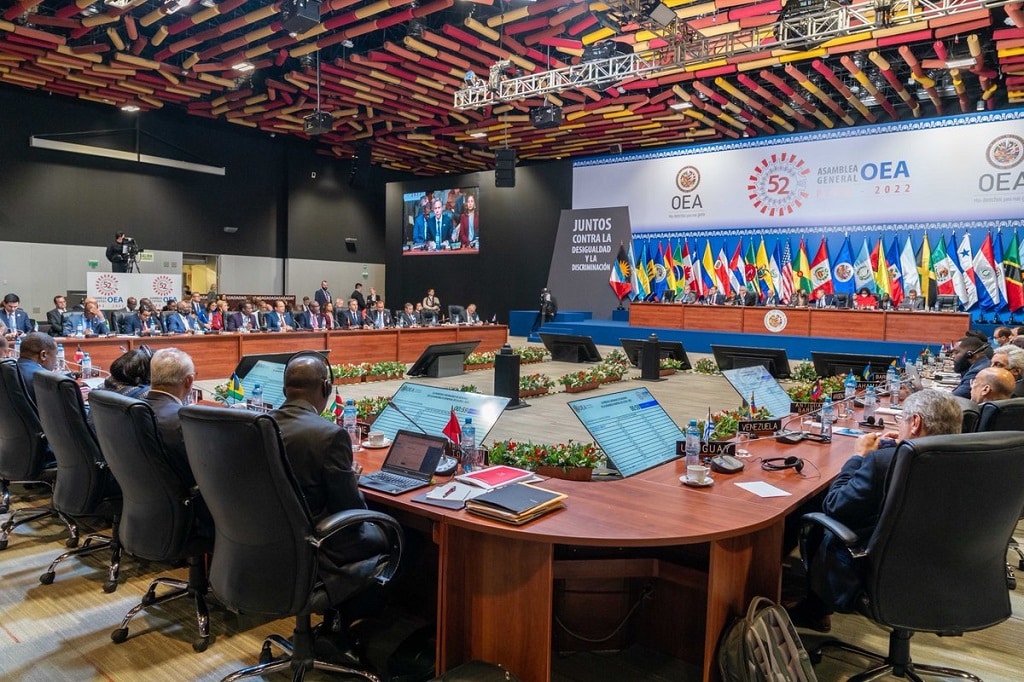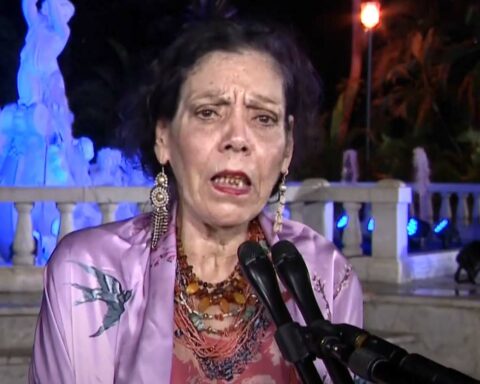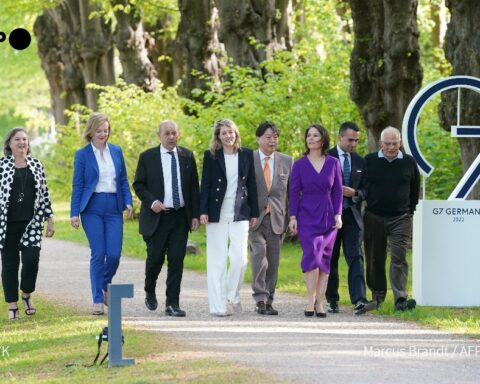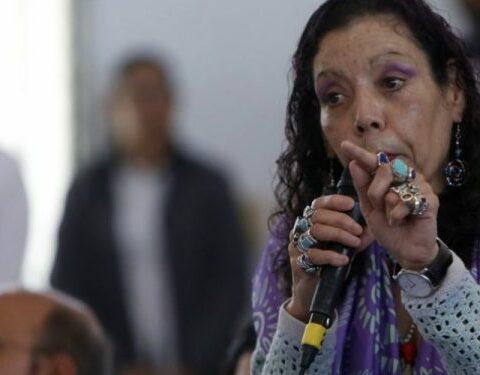The sharpening of the authoritarian drift of the regime of Daniel Ortega and Rosario Murillo in Nicaragua, was one of the main topics in the first session of the 52 OAS General Assembly of Foreign Ministers, which takes place in Lima, Peru. Some foreign ministers demand greater condemnation of the Nicaraguan dictatorship, and others blame it for “contributing” to a current regional migration crisis.
The Minister of Foreign Affairs of Ecuador, Juan Carlos Holguín, called Nicaragua a “dictatorship” on Thursday and asked the Organization of American States (OAS) to pressure the Government of Ortega and Murillo to change course, in addition to demanding a ” definitive solution” in Venezuela.
During his speech, Holguín affirmed that in Nicaragua “a dictatorship is prolonged that carries crimes against humanity.”
“In his marked self-absorption, the Nicaraguan government once again attacked the Catholic Church, the pope and the secretary general of the UN. This cannot continue and we must adopt resolutions that pressure that dictatorship to change course and end its manifest violation of human rights and disrespect for basic freedoms in Nicaragua,” said Holguín.
US Secretary of State Antony Blinkenwarned that there are more and more leaders who “undertake anti-democratic measures under the false justification that they have popular support”, and called for putting aside ideologies to defend democracy.
The leader of US diplomacy gave as an example the approval of legislation that extends the mandates of presidents or that allows the harassment of judges. Given this, he affirmed that the United States will work with its partners, both governments and civil society organizations, to denounce these abuses.
Ortega breaches the Democratic Charter of the OAS
“I want to be very clear: It’s not about choosing sides between left and right or progressive and conservative, it is about committing ourselves to democracy ahead of ideologies and parties”, he claimed.
The US foreign minister also asked the countries of the region to “unequivocally condemn the authoritarian regimes in the region,” among which he cited Nicaragua, Cuba and Venezuela.
He assured that the Ortega government violates the democratic charter of the OAS by “arbitrarily arresting the opposition, repressing protests and committing flagrant electoral fraud.”
The Foreign Minister of Costa Rica, Arnoldo André Tinoco, stressed that “in recent years we have witnessed the persecution, arbitrary arrests and imprisonment of opposition leaders, members of the Catholic Church, religious orders, youth and others.”
The Costa Rican diplomat added that in Nicaragua there is “repression against the media and civil society, undermining the rights to freedom of expression, freedom of association and violating the human rights of its people.”
“This worsening situation requires the attention of our region,” he said.
From mid-2018 to date, the OAS has approved 14 resolutions on the situation in Nicaragua. Voting has taken place in the two main instances of the regional organization: the General Assembly of foreign ministers (four) and the Permanent Council (ten).
Ortega Acts Contribute to Immigration Crisis
The Minister of Foreign Affairs of Canada, Melanie Joly, pointed out that the American nations “have a collective duty when States like Nicaragua and Venezuela break the promises they made to their citizens, in the key values of our region.”
He criticized that instead of fulfilling his promises, “Ortega decided to withdraw from the OAS.”
On November 19, 2021, the regime resigned from the OAS, after in a General Assembly, 25 countries declared voting “without legitimacy” on November 7, 2021, in which Ortega was re-elected for the fourth consecutive time, without political competition and without democratic guarantees.
“Even outside our institution, we must continue to denounce their actions because it is not possible for them to go unpunished,” warned the Canadian foreign minister, who indicated that Ortega with his acts “has contributed to a regional migration crisis.”
A report from the Customs and Border Protection (CBP, in English) points out that, so far this fiscal year – which began in October 2021 – the arrests of migrants along the border with Mexico have already exceeded two million. According to US authorities, irregular migration from countries such as Nicaragua, Venezuela and Cuba is on the rise.
The Foreign Minister of Costa Rica called on the member countries of the OAS to work together to address migratory flows in the continent.
André explained that Costa Rica is a country of transit and destination that “experiences the growing arrival of migrants and refugees derived from the deterioration of political, social and economic conditions in other sister countries.”
He explained that Costa Rica is currently the second recipient of refugee applications per capita in Latin America, the third in the hemisphere and the fourth worldwide.
In recent years, Costa Rica has received migratory flows of Haitians, Cubans, Africans and Venezuelans who, for the most part, seek to cross the continent to reach the United States. Another important flow comes from neighboring Nicaragua.
Luis Almagro: Nicaragua “has distanced itself”
The Secretary General of the OAS, Luis Almagro, stated that the Government of Nicaragua “has definitely distanced itself” of the regional body and that the difficulties in dealing with political issues with the regime of this country “have been increasing.”
The Uruguayan diplomat referred to the decision announced last April by the Nicaraguan government to withdraw the credentials of its representatives before the OAS and the “seizure of the headquarters” of the organization in Managua as an “act that completely violated the immunities and privileges that this headquarters had under international and diplomatic law.”
He insisted that, after the “administrative issues” that continued these events, “contacts to address political issues have not been possible.”
The OAS Secretary General asserted, however, that “obviously the work continues, both in the United Nations and within the OAS.”
He added that “the dynamics of pressure on the regime have been maintained” and that the international community has continued “reinforcing the denunciations and condemnation” of the government.








